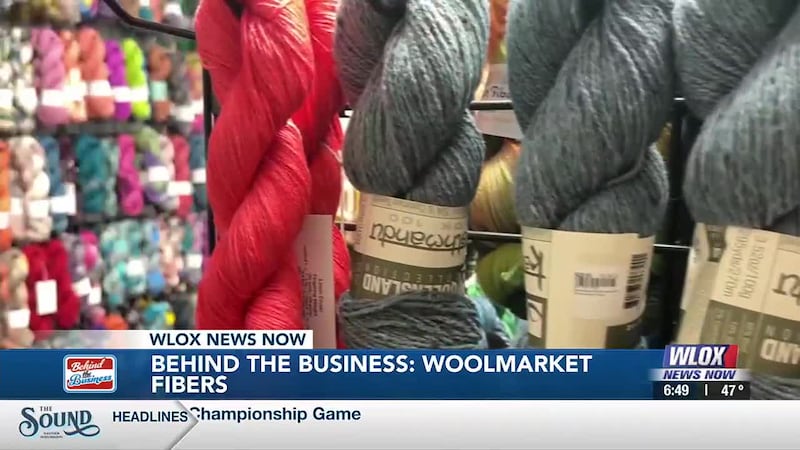The salty air that once carried the scent of opportunity now whispers of uncertainty. Along the Mississippi coast, small business owners are caught in the crosshairs of a trade war they didn’t start, watching their costs rise and revenues shrink as tariffs bite. From the bustling fish markets to the quaint souvenir shops, the economic storm brewing on the global stage is slamming into local shores, threatening the very fabric of coastal communities. This is their story.
The Unrelenting Passion of Small Business Owners

Behind every small business is a personal motivation that drives entrepreneurs to take the leap and pursue their passions. For Emily Mihnovets, owner of Saltwater & Stem, it was her son’s diagnosis with autism that inspired her to turn her hobby into a business. “Flowers became my outlet when my son was diagnosed with autism, and now that he’s flourishing and doing amazing things and blooming himself, I decided it was time to go back to work,” Mihnovets explained. Her story is a testament to the emotional connection many small business owners have with their work.
In many cases, this passion is what propels entrepreneurs to juggle multiple roles, often wearing multiple hats as they manage the day-to-day operations of their business. This can be a daunting task, but it’s a necessary one for those who are determined to turn their visions into a reality. As Mihnovets and other small business owners at the Spring Makers Market in Gulfport can attest, the rewards of entrepreneurship far outweigh the challenges.

The Reality of Side Hustles
For many small business owners, their business is not their sole source of income. Amanda Schuler, owner of 3 Daughters Apothecary, is a prime example. In addition to running her business, she works as an assistant manager at Hobby Lobby. “This is definitely a side hustle for me,” Schuler explained. Her story is not unique; many small business owners have to balance their passion projects with the financial necessity of a steady income.
This reality can be a difficult one to navigate, as entrepreneurs must carefully manage their time and resources to ensure the success of their business. However, as Schuler’s story demonstrates, the rewards of pursuing one’s passion can be well worth the extra effort.

Practical Strategies for Survival
Diversifying and Adapting
In today’s uncertain business climate, small business owners must be prepared to adapt to changing circumstances in order to survive. For Mihnovets, this means finding alternative suppliers to mitigate the impact of tariffs on her business. By diversifying her supply chain, she can ensure that her business remains resilient in the face of uncertainty.
This strategy is critical for small business owners who must navigate the complex web of international trade agreements and tariffs. By being proactive and finding alternative solutions, entrepreneurs can stay ahead of the curve and ensure the long-term success of their business.

Pricing Strategies in a Tariff Era
In a tariff era, pricing strategies become even more critical for small business owners. Amanda Schuler’s decision to lower the price of her lotion from $45 to $25 is a testament to the delicate balance between affordability and profitability. By making tough decisions, entrepreneurs can stay competitive in a rapidly changing market.
This requires a deep understanding of the market and a willingness to adapt to changing circumstances. By staying attuned to the needs of their customers and the fluctuations of the market, small business owners can ensure that their pricing strategies are aligned with their business goals.
Conclusion

As coast small business owners continue to navigate the complexities of tariffs imposed on imported goods, the financial strain is becoming increasingly evident. According to the article, many coastal small business owners are witnessing a sharp decline in revenue and a significant spike in costs, as they struggle to absorb the added expenses. The imposition of tariffs on imported goods has led to higher production costs, reduced consumer spending, and a decline in sales for these businesses. The article highlights the challenges faced by these entrepreneurs, who are finding it increasingly difficult to maintain their competitiveness in a rapidly changing market.

The significance of this issue extends beyond the financial implications, as it also has broader implications for the local economy and employment prospects. The article notes that the tariffs have a ripple effect, impacting not only the businesses that import goods but also the suppliers, distributors, and consumers. The decline in consumer spending and reduced sales can lead to job losses and a decline in economic activity, ultimately affecting the well-being of local communities. As the situation continues to unfold, it is essential for policymakers and businesses to work together to find solutions that mitigate the negative impact of tariffs.

Looking ahead, it is likely that the effects of tariffs will be felt for some time to come. As coastal small business owners continue to adapt to the changing market landscape, it is crucial that they develop strategies to mitigate the risks and capitalize on new opportunities. The article concludes by emphasizing the importance of supporting these entrepreneurs and finding sustainable solutions to the challenges posed by tariffs. As the saying goes, “a small business is not just a business, it’s a backbone of the community.” It is time for us to come together and ensure that these entrepreneurs can continue to thrive, even in the face of uncertainty.


